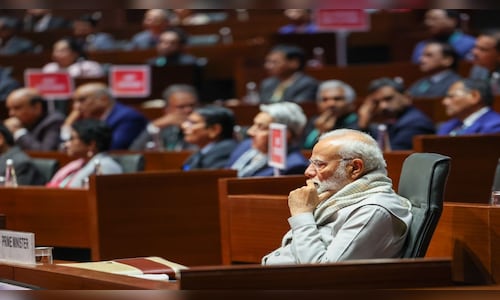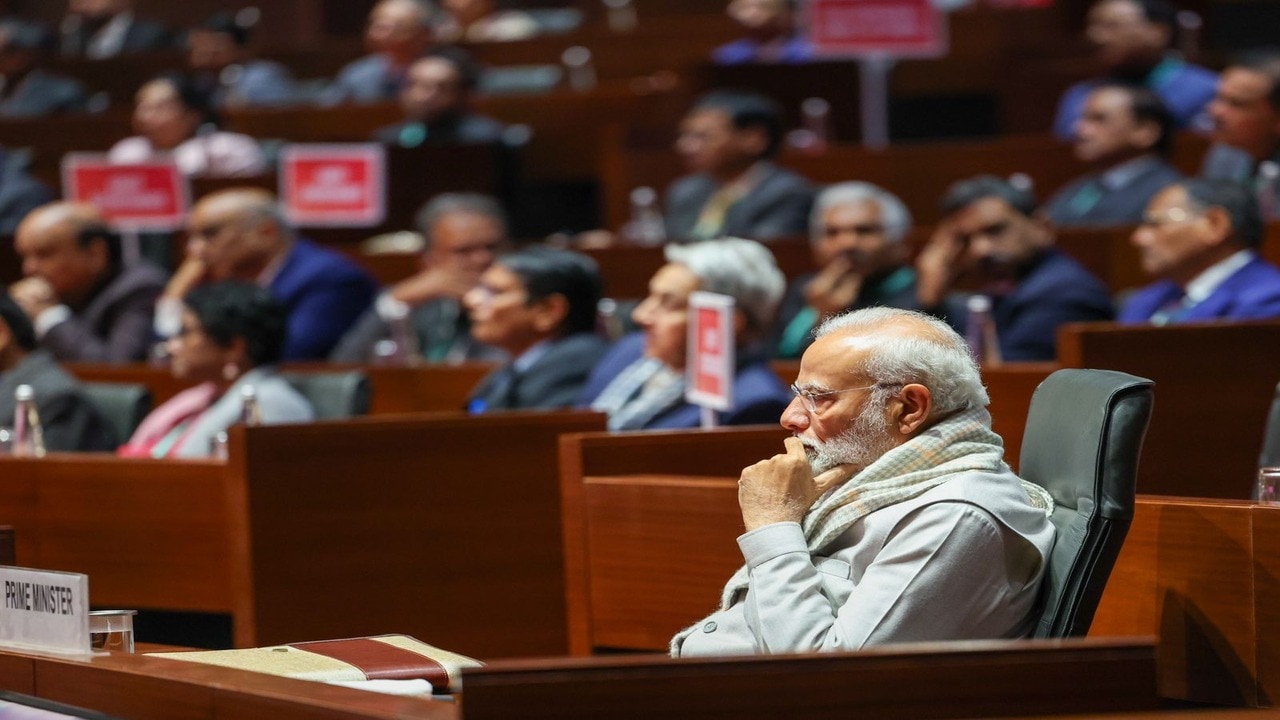

The meeting centered on strengthening key sectors, including agriculture, MSMEs, and manufacturing. There were also in-depth discussions on how India can capitalise on the current geopolitical landscape to play a larger role in global value chains and create more jobs across various sectors.
Among the 15 economists and experts present were Ridham Desai from Morgan Stanley, agriculture economist Ashok Gulati, former IMF Executive Director Surjit Bhalla, and DK Joshi from CRISIL. This has become an annual tradition where the Prime Minister seeks insights from leading economists.
The closed-door meeting took place at Niti Aayog and was attended by Finance Minister Nirmala Sitharaman, Union Minister for Statistics and Programme Implementation, Principal Secretary to the Prime Minister PK Mishra, Niti Aayog Vice Chairman Suman Bery, and Niti Aayog CEO BVR Subrahmanyam.
The meeting comes ahead of the Union Budget, which is scheduled to be presented on February 1, 2025. The industry is hoping that the upcoming budget will introduce measures to support growth, boost consumption, and stimulate the investment cycle. The discussions are particularly timely, following a growth slowdown in Q2 to 5.4%, the lowest in seven quarters.
Consumption And Rural Income Boost Critical
Speaking to CNBC-TV18, Rajani Sinha, Chief Economist at CareEdge Ratings said, “In the near term the government needs to focus on consumption boost. In the last few years the government’s focus was on capex and that has helped India record high growth. But if you’re looking at now sustaining growth, I think some form of consumption stimulus is also required. So, in that sense I feel if the FM looks at some kind of cut in personal income tax by say around 5% across all tax labs, that should help boost consumer sentiments and consumption spending.”
“Over a longer period of time, considering our aspiration of being a developed country, we need to focus on increasing the rural income. Given that more than 60% of India’s population lives in rural area, if the government policies or measures are able to increase the rural income, that can really be the game changer. And this is where I feel the focus should be on improving agriculture productivity. There should be incentives given for adoption of technology in agriculture sector also. So, in that sense something like agri accelerator fund that we have, there should be further support given to that. There should be support given to schemes that encourage farmer producer organisation. So, I think these kind of measures are required to further give a boost to rural income,” Sinha added.
Absence Of Private Capex A Concern
Madhavi Arora, Lead Economist at Emkay Global Financial Services said, “For the Indian economy at this point in time and something which is probably been the case since last one year specifically has been absence of the private economic agents and that’s not coming back any sooner. Probably the next 6 to 9 months or even longer, you’ll probably see a very lax response by private economic agent, be it consumption or investment. The policymakers have been, very categorical in terms of their spend, they’ve been very focused on a capital expenditure spend versus the revenue expenditure at least at the centers end if not at the states end. But at this point in time, if you look back and see the response from private sectors has been very, very tepid as far as the private capex is concerned, which sort of makes us believe that the private capex will only probably take off when you see private consumption really take off.”



